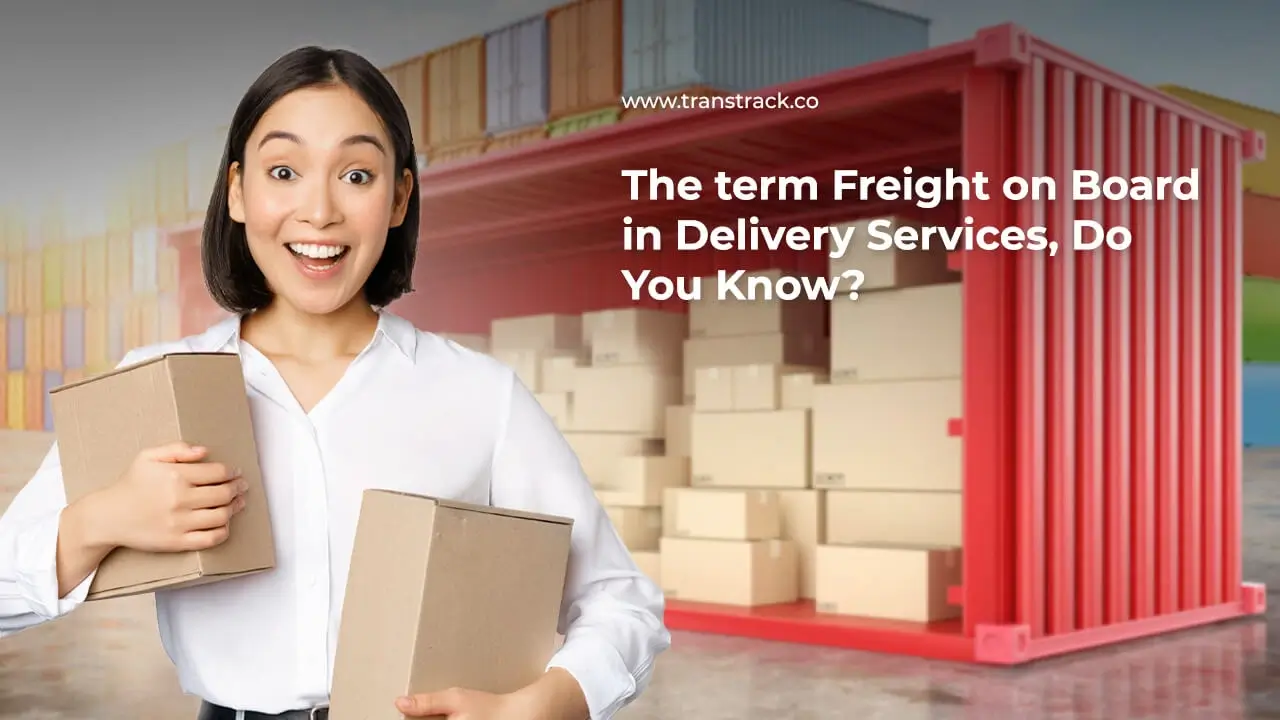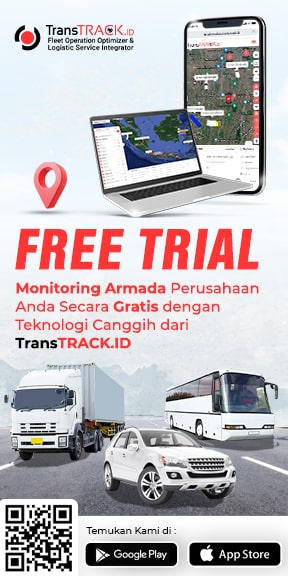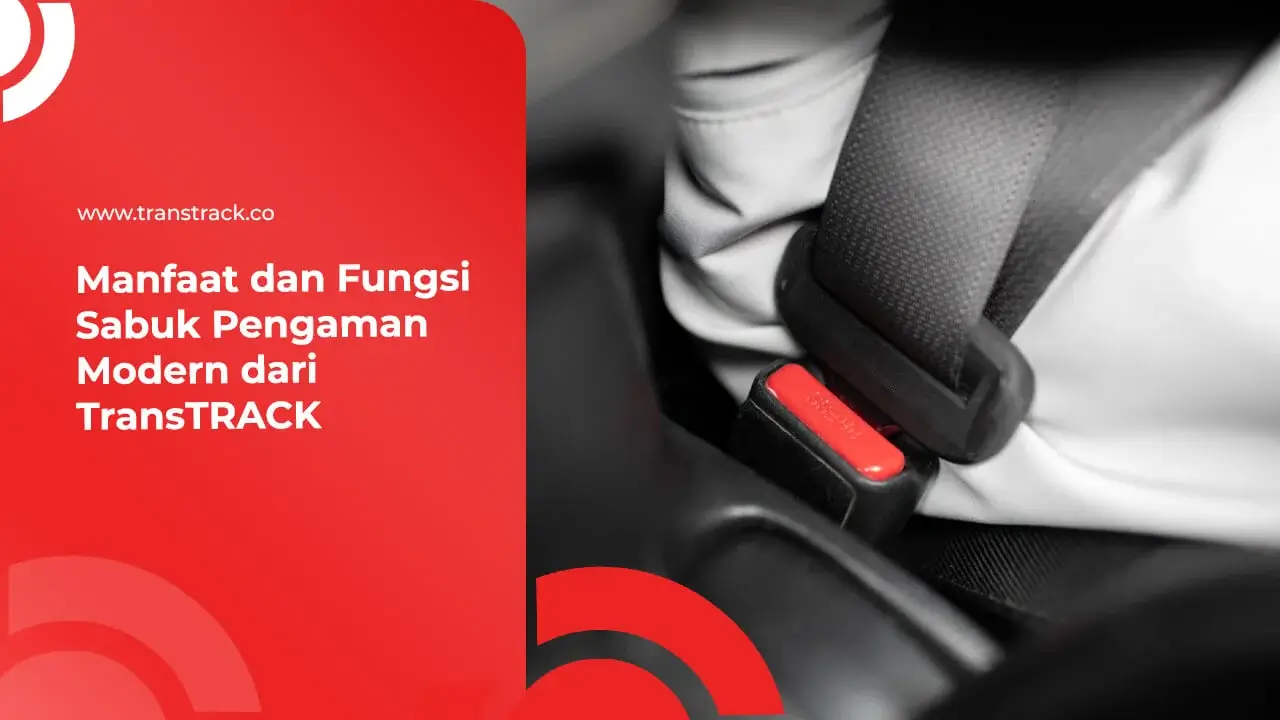The Term Freight on Board in Delivery Services, Do You Know?

If you have ever sent an item, maybe you have encountered the abbreviation FOB (Freight on Board) in your shipping documents. However, how many of us actually understand its meaning? Turns out, there weren’t that many of them. Even those who work in the shipping industry and have an understanding of shipping terms often feel confused about their true meaning.
In order to help shippers better understand FOB, we have broken down its meaning in this TransTRACK article below:
Definition of FOB
FOB is an abbreviation for “free on board” or “freight on board” which is used to indicate the time when responsibility and ownership of goods is transferred from the seller to the buyer.
Free on Board
The term “free on board” indicates whether damage or damage to the goods during shipment is the responsibility of the seller or the buyer. When tied to a specified physical location, this determination determines who must pay transportation costs as well as at what point ownership rights pass from the seller to the buyer.
For example, in the context of international shipping, “FOB [name of port of origin]” refers to the seller’s (shipper’s) responsibility for transporting the goods to the port of shipment and all costs associated with loading.
Meanwhile, the buyer (recipient of the goods) takes responsibility for sea transportation costs, insurance, unloading and transportation from the port of destination to the final location. By the time the goods are loaded at the port of origin, the risk associated with the goods has passed to the buyer.
Freight on Board
The term “freight on board” is another term which is sometimes used as a synonym for “free on board”. However, keep in mind that this term is not the official one used.
Seller’s Obligations in FOB
In the FOB context, each seller or exporter is required to provide the products that have been ordered and accompanied by a sales invoice in accordance with the terms of the sales contract.
Not only that, the FOB system also explains that the seller’s responsibilities include processing export permits and other customs actions required in the process of sending goods abroad.
Once the license is obtained, the seller is required to deliver the product according to the date or period specified in the contract. Furthermore, the seller must also notify the buyer that delivery has been made and the goods have been loaded onto the ship.
Buyer’s Obligations FOB
Under an FOB contract, the buyer has the responsibilities governed by the agreement. Apart from paying the cost of the goods according to the nominal value stated in the sales contract, the buyer must also obtain an import permit and customs documents from the recipient country.
This aims to ensure a smooth import process without permit barriers.
When the goods have arrived, the buyer’s task is to check the condition of the product and pick it up according to the terms of the contract. Next, the buyer also needs to notify the seller that the order has been received.
Seller’s Obligations
| No. | Seller’s Obligations |
| 1 | Prepare sales invoices |
| 2 | Manage shipping-related permits (such as export permits, customs, etc.) |
| 3 | Send products according to the transaction agreement |
| 4 | Covers related costs (inspection, measurement, weighing, etc.) |
| 5 | Send confirmation to the buyer that the product has been shipped |
Buyer’s Obligations
| No. | Buyer’s Obligations |
| 1 | Obtain import permits and customs documents (for overseas purchases) |
| 2 | Make bill payments for products that have been purchased |
| 3 | Arrange product transportation orders and provide confirmation to the seller |
| 4 | Responsible for all costs, risks and payments related to shipping |
| 5 | Pick up the ordered product when it arrives at the ordering destination |
FOB type
There are two main variants of the common types of FOB, namely FOB shipping point and FOB destination point.
In FOB shipping point, responsibility for shipping costs is assigned to the importer or buyer. Conversely, in the FOB destination point, it is the seller who is responsible for the delivery of the goods until they arrive in the hands of the buyer.
FOB Vs CIF
The fundamental difference between FOB and cost, insurance and freight lies in the CIF agreement, where the seller bears most of the shipping costs. In the context of a FOB agreement, the seller and buyer have the flexibility to negotiate and share costs according to their agreement.
CIF, on the other hand, places the entire burden of shipping costs, including insurance and transportation, on the seller until the goods arrive in the hands of the buyer. These agreements are particularly relevant within the scope of international shipping and are likely to vary based on the location of the seller and buyer. The terms of FOB and CIF agreements also tend to be dictated by the contract between the two parties.
Reasons Why Use FOB
FOB has reasons of various significance, but especially important is the understanding that shippers and carriers must have of the implications of FOB in the context of damage.
Some receiving ports may refuse acceptance of goods that are clearly damaged, rather than accepting with a record of the damage for the purpose of future claims against the carrier.
Nonetheless, a shipment labeled FOB Origin in effect transfers ownership of the goods to the buyer or consignee at the time the shipment is made. Therefore, the recipient of the goods will refuse the goods that are legally his and must bear the risk of possible damage.
The seller has no legal basis to accept the items back, and sending them back could potentially cause more damage.
Conclusion
Understanding the concept of Freight on Board (FOB) is very important for all parties involved in cross-border trade. The strategic implications, cost considerations and elements of risk management associated with FOB can have a sizeable impact on the success of a trade transaction. Using the insights and knowledge shared in this guide, individuals and companies can tackle the complexities of FOB with greater confidence and efficiency.
Track your shipments easily with TransTrack’s Cargo Tracker! Simple installation makes it ready to use in minutes. With advanced tracking technology, you will always have accurate location information for your shipments. No need to worry about the battery running out, because our Cargo Tracker has a battery life that lasts up to 5 days. With reliability and ease of use, make sure each of your cargo shipments arrives on time and safely with our Cargo Tracker.
Topic





